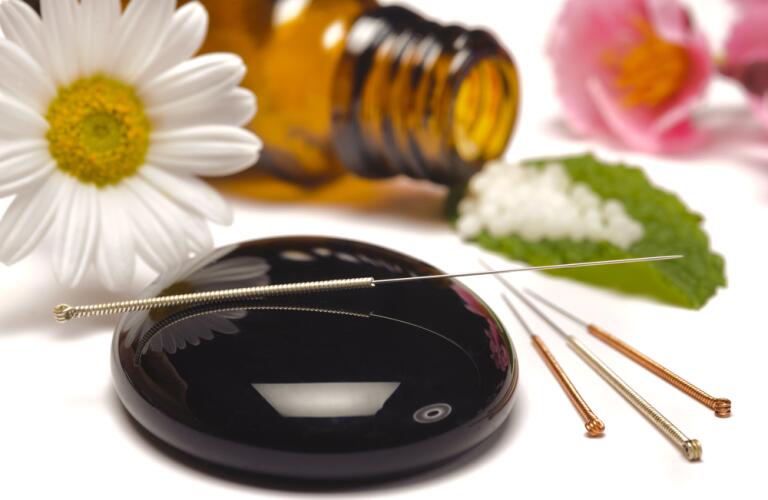
There's no doubt that life with multiple sclerosis (MS) can be unpredictable. You might feel fine one day and the next day experience numbness, vision problems, and dizziness. This can make planning ahead difficult and seemingly futile. But one thing you can control, at least to a degree, is your treatment.
There are conventional medical treatments that work very well for MS. However, you might also respond to complementary and alternative treatments for MS. These forms of treatment may help you feel more involved in your care.
In the United States, about 75% of people with MS use some form of complementary or alternative medicine for their symptoms. These treatments should not replace conventional medical treatment. Most people with MS who go this route combine alternative treatments with traditional treatments prescribed by their doctors. Always talk to your doctor before trying these treatments.
Three of the most common MS complementary and alternative treatments are:
According to the National Multiple Sclerosis Society, many medical conditions may respond to acupuncture, including MS. Acupuncture is a technique from Chinese medicine that channels the flow of energy or qi (pronounced “CHEE”). Qi flows through 14 meridians, or pathways, in the body. An acupuncturist inserts thin needles into points along the meridians to change the flow of energy. This may ease MS symptoms, such as pain, spasticity, numbness, bladder problems, and depression.
There have been no controlled studies on acupuncture for MS. However, two recent surveys in the United States and Canada show that up to one-fourth of people with MS have tried acupuncture. And of those who have tried it, 10 to15% say they plan to continue using it.
If you want to try acupuncture, talk with your doctor first and use it only in addition to conventional medical treatments. Be sure to find a licensed acupuncturist. To find one, ask your healthcare provider or search through one of the main acupuncture organizations:
Acufinder.com (www.acufinder.com)
American Academy of Medical Acupuncture (www.medicalacupuncture.org)
National Certification Commission for Acupuncture and Oriental Medicine (www.nccaom.org)
National Center for Complementary and Alternative Medicine (www.nccam.nih.gov)
There is evidence that omega-3 fatty acids may help with MS. Omega-3 fatty acids are found in oily fish like salmon and mackerel. A study published in the Expert Review of Clinical Immunology found that omega-3’s may reduce MS inflammation and improve symptoms. More research is necessary to back up this finding. In the meantime, talk to your doctor about adding a few servings of fish to your diet.
Tai chi is a Chinese martial art that involves slow, gentle movements; deep breathing; and relaxation techniques. It promotes balance and body awareness, both of which can help you better manage MS. As a mind-body practice, it can relieve stress and improve muscle tone.
The American College of Traditional Chinese Medicine in San Francisco studied tai chi and MS. The small study showed that tai chi may benefit people with MS. Participants who practiced tai chi for eight weeks felt better emotionally, socially and physically.
As with all exercise, talk with your doctor before starting tai chi. Visit the American Tai Chi and Qigong Association online ( http://www.americantaichi.org) to find a class and instructor. Also, check your local fitness center or community center for classes. Before you take your first class, talk with the instructor about your MS and any physical limitations you might have.
Safety should be your first concern with complementary or alternative treatment. And that isn’t always black and white. The U.S. Food and Drug Administration tests conventional medical treatments to make sure they are safe. But complementary and alternative treatments do not undergo the same process. Some have research to back them up, while others do not. That's why you cannot always be 100% confident that an alternative remedy or technique is totally safe.
If you are considering using complementary or alternative treatments for MS, talk with your doctor first. You may also consult with a licensed health practitioner who has completed certified training in complementary and integrated health.
Complementary therapies in addition to your doctor-prescribed treatment may provide symptom relief for MS.
Small studies show that eating foods rich in omega-3 fatty acids and the mind-body exercise tai chi may be helpful. Some people with MS use acupuncture for symptom relief.
Always talk with your doctor before trying any alternative or complementary therapies.
